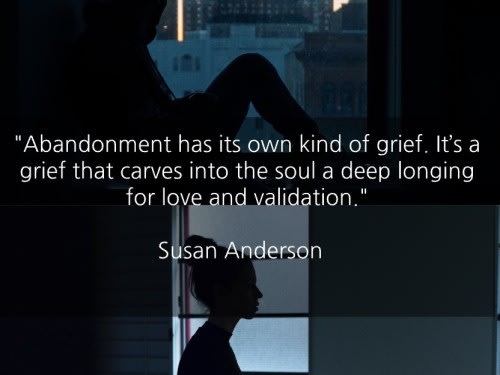Fear of Abandanment

posted 13th November 2023

Understanding and Overcoming the Fear of Abandonment
As a society, we often gloss over the profound long-term effects a childhood trauma, such as parental divorce, can have on an individual's adult life. Through anonymous anecdotes, we can begin to understand the deep-seated fear of abandonment that so many carry into their later years. Consider a person who, at the tender age of six, was met with the destabilising news of their mother's departure—a news delivered with a formal discomfort that only hinted at the depth of disruption to come. This event would mark the beginning of a life-long struggle with forming stable romantic attachments.
For some, the aftermath of parental separation can resonate through the years, manifesting in an ongoing pattern of challenging relationships. They may find themselves repeating cycles of attachment and detachment, driven by an unconscious need to protect themselves from the pain of abandonment experienced in childhood. They might even engage in relationships with individuals who, though seemingly different, perpetuate a familiar sense of instability and uncertainty.
Adults who have navigated the choppy waters of their parents' toxic custody battles often carry scars that go beyond the surface. While they may acknowledge their parents as fundamentally good people, the residue of witnessed disputes and absorbed hurt cannot be easily erased. This internalization of childhood trauma can lead to an avoidance of commitment or a series of self-sabotaging relationships.
The voice of one such individual echoes the sentiment of many: despite the apparent joys of love, the underlying fear that it might all fall apart—as it once did in their most formative years—can make domesticity and routine feel like a cage rather than comfort. Even in moments of potential familial bliss, the specter of past pain looms, making each step towards intimacy fraught with the fear of imminent loss.
Moreover, the data from various studies reinforce these personal stories, suggesting that the offspring of divorced parents are indeed more susceptible to difficulties in their own romantic ventures. Research points to a possible physiological underpinning for this struggle, with findings indicating that such individuals might have lower levels of oxytocin, the hormone that facilitates bonding and attachment.
Through these shared experiences and scientific findings, we confront the reality that the fear of abandonment is not an isolated experience but a shared human condition that requires our empathy and understanding. It's a reminder of the invisible threads that connect the events of our childhood to the complex tapestry of our adult lives, influencing our decisions, our relationships, and our very sense of self.



